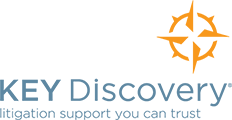Early case assessment is crucial to helping you estimate the benefits and risks of a legal matter to determine the most suitable case strategy.
This post will examine how you can use ECA discovery to determine if your case should proceed to trial.
Anatomy of Early Case Assessment
While ECA discovery entails a wide variety of things, the following are the general essential elements of the early case assessment process.
Custodian Interviews
Interviewing custodians can go a long way in helping you gain an idea of the case’s scope. The interviews help you identify the involved parties, the amount of data the legal matter involves, and if any relevant documents could determine how the litigation goes.
Data Analytics
Chances are, you don’t have the time or luxury to review every document you collect. Fortunately, you can turn to data analytics.
Data analytics helps you convert the documents you collect into useful information. The process enables you to generate reports that capture data ranges, data volumes, key concepts, custodian names, and other insights.
You can then use these reports to make informed decisions about the course of action.
Sampling
Besides analytics, you could use sampling to analyze data. This concept assumes that one can draw accurate conclusions about an entire data set by examining a representative subset.
Data sampling helps you resolve concerns over sample sizes, error margins, and confidence rates and is one of the most effective early case assessment tools.
Reporting
Creating reports allows you to digest the actionable information you collect easily. Doing so provides a record of all ECA activities for a thorough review and analysis.
Reports are also export-friendly, making it easy for you to share them with a judge or opposing counsel.
What Are the Key Steps in Early Case Assessment?
You can conduct your ECA in several different ways. However, before starting the process, you must begin by determining the documents you need to collect, the custodians you will interview, and the entire process’s complexity, challenges, and costs.
Here’s a step-by-step breakdown of the critical steps in an ECA process.
Step One: Conduct Interviews
Beginning with the custodian interviews is always ideal. They will help you determine the most relevant documents to collect, their data size, and locations.
This step helps you develop a big-picture view of the legal matter before beginning a detailed analysis.
Step Two: Data and Document Collection
It is unlikely that conducting your case assessment will require every bit of data. Therefore, identify the most essential documents and collect them in phases.
Step Three: Document Review
Analyze your collected documents to gain valuable information and create a suitable case plan.
Best Practices for ECA
Your case assessment will take different shapes, depending on the case’s context and nature. However, an effective ECA process should always involve applying specific key practices regardless of the case.
Some of the best ECA practices include:
- Analyzing your case’s context as soon as possible
- Involving IT from the start
- Creating a data and custodian map
- Sampling data sources
- Deleting unnecessary data
- Having a solid preservation strategy
- Cooperating with opposing counsel
- Using ECA tools and software
- Establishing an iterative process to identify all relevant ESI
How ECA Can Help You Save Money and Time
Early case assessment is one of the most crucial aspects of successful legal disputes. The process helps you gather relevant data about the case early on, allowing you to determine the risks and benefits of moving forward.
Should you decide to pursue the matter, your assessment will reveal potential costs, helping you determine whether to handle the issue in-house or pass it on to outside counsel. You can save plenty of time and money by identifying the most suitable course of action.
Reliable Litigation Support
The amount of data and information even the most straightforward lawsuit generates can be overwhelming. Fortunately, Key Discovery can help. We provide various litigation support services that could prove crucial to your firm.
Contact Key Discovery at 617.348.9360 to learn how our expertise in early case assessment can help you make the most out of your resources.
We also invite you to learn more about Early Case Assessment Services our sister company offers.

